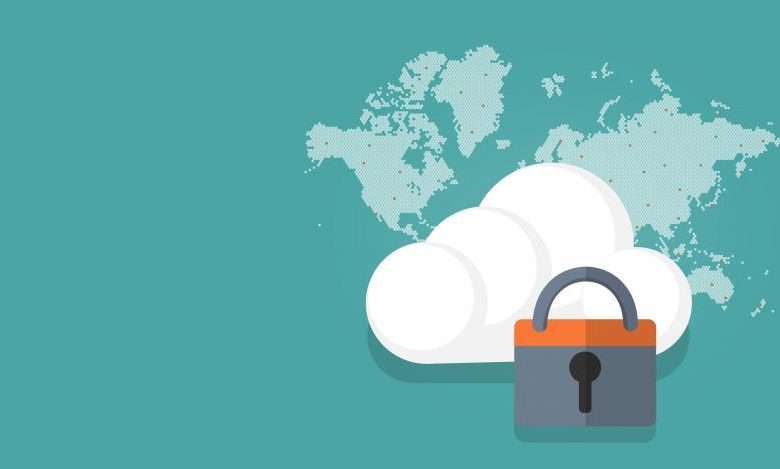Thales 2025 Cloud Security Study: APAC Organisations Struggle to Secure Expanding, AI-Driven Cloud Environments
54% of Singapore Respondents Report AI Security Spending Is Displacing Traditional Security Budgets, While 50% of APAC Respondents Report the Same Trend

Thales, a global leader in technology and cybersecurity, has released the findings of its 2025 Cloud Security Study conducted by S&P Global Market Intelligence 451 Research. The study revealed that Artificial Intelligence AI-specific security has rapidly emerged as a top enterprise priority, ranking second only to cloud security, in Singapore and across the Asia Pacific region.
According to the 2025 Cloud Security Study, nearly half (49%) of Singapore respondents said they are prioritising AI security investments over other security needs, signalling a shift in how organisations are allocating budgets in response to the accelerated adoption of AI.
However, the 2025 Cloud Security Study also found that only 37% of APAC respondents said they are prioritising AI security investments as their top security spending priority, which indicates that while AI security is a significant concern across the region, most organisations are balancing it alongside other established security investments, even as Singapore is generally more advanced in recognising and responding to AI-related security risks. This year’s research captures perspectives on cloud security challenges from nearly 3,200 respondents in 20 countries across a variety of seniority levels.
Cloud Remains at the Forefront of Security Considerations
Cloud is now an essential part of modern enterprise infrastructure, but many organisations are still building the skills and strategies needed to secure it effectively. The variability of controls across cloud providers, combined with the distinct mindset required for cloud security, continues to challenge security teams. This pressure is only increasing as AI initiatives drive more sensitive data into cloud environments, amplifying the need for robust, adaptable protections.
This year’s Thales 2025 Cloud Security Study confirms that cloud security remains a top concern for enterprises in Asia Pacific, and globally. Cloud security emerged as a top priority for organisations across the region. In Singapore, 60% of respondents ranked cloud security among their top five security priorities, with 18% identifying it as their highest priority. This closely mirrors the broader APAC trend, where 60% of respondents also placed cloud security in their top five priorities and 15% ranked it as their number one concern.
Meanwhile, AI security—a new addition to this year’s spending priorities—was ranked by 40% of Singapore respondents in their top three pressing security disciplines, significantly behind the 59% average for APAC respondents. Despite this regional difference, the inclusion of AI security as a new spending category underscores its rapidly growing importance across the region. Despite sustained investment, cloud security remains a complex, persistent challenge that goes beyond technology to include staffing, operations, and the evolving threat landscape.
“The accelerating shift to cloud and AI is forcing enterprises to rethink how they manage risk at scale,” Daniel Toh, Chief Solutions Architect, Asia Pacific & Japan, at Thales, said. “With over half of cloud data now classified as sensitive, and yet only a small fraction fully encrypted, it’s clear that security strategies haven’t kept pace with adoption. To remain resilient and competitive, organizations must embed strong data protection into the core of their digital infrastructure.”
The average number of public cloud providers per organisation has risen to 2.1 in Singapore and in APAC, with most also maintaining on-prem infrastructure. This growing complexity is driving security challenges with 69% of Singaporean respondents reporting that cloud is harder to secure than on-prem, versus only 58% in APAC. As organisations expand through growth or M&A, they’re also seeing a surge in SaaS usage, now averaging 77 applications per enterprise in Singapore, and 81 applications per enterprise in APAC, complicating access control and data visibility.
This complexity extends to security operations, with many teams struggling to align policies across varied platforms. The study found that 49% of Singaporean organisations use five or more tools for data discovery, monitoring, or classification, and 57% use five or more encryption key managers. Comparatively, 58% of APAC organisations use five or more tools for data discovery, monitoring, or classification, and 55% use five or more encryption key managers.
Attacks Target Cloud Resources with Human Error Remaining a Top Vulnerability
Cloud infrastructure is a prime target for attackers as organisations continue to struggle with securing increasingly complex environments. The 2025 Cloud Security Study reveals that cloud-based assets face significant threat exposure, with three of the top five most targeted assets in reported attacks being cloud-based across both Singapore and the broader APAC region.
Tellingly, 25% of Singapore respondents saw an increase in user credential attacks such as password stuffing, compared to 19% for APAC overall. This underscores growing concerns around stolen credentials and insufficient access controls. Meanwhile, 88% of Singaporean organisations and 85% of APAC organisations say at least 40% of their cloud data is sensitive, yet only 76% in Singapore have implemented multifactor authentication (MFA), while APAC organisations lag further behind at just 66%, leaving critical data exposed. Compounding the issue, human error remains a major contributing factor in cloud security incidents, from misconfigurations to poor credential management.
“A rising number of respondents report challenges in securing their cloud assets, an issue that is further amplified by the demands of AI projects that often operate in the cloud and require access to large volumes of sensitive data,” Eric Hanselman, Chief Analyst at S&P Global Market Intelligence 451 Research, said. “Compounding this issue, four of the top five targeted assets in reported attacks are cloud-based. In this environment, strengthening cloud security and streamlining operations are essential steps toward enhancing overall security effectiveness and resilience.”
Learn More About the 2025 Cloud Security Study
For more information, please download the 2025 Cloud Security Study and join the Thales webinar hosted by Eric Hanselman, Chief Analyst at S&P Global Market Intelligence 451 Research.




